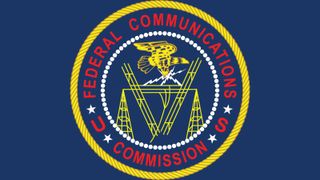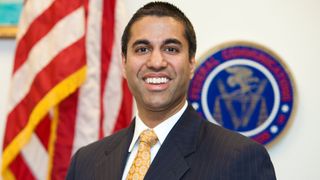FCC Changes Formal Complaint Process

A divided FCC voted 3-1 Thursday (July 12) to "streamline, coordinate and refine" the FCC formal complaint rules to "clarify" that the informal complaint process is meant to facilitate dialog between carriers and customers, but does not itself result in a formal complaint.
The order, which stems from a September 2017 notice of proposed rulemaking, deals with complaints "regarding pole attachments, and formal complaints concerning the accessibility of telecommunications and advanced communications services and equipment for people with disabilities."

FCC chair Ajit Pai made it clear he thought that reports the changes meant consumers would now have to pay $225 to file a complaint were false.
That came after Democratic commissioner Jessica Rosenworcel said that the changes meant the FCC would simply become a conduit for letters between consumers and carriers, and that consumers would now have to file a formal complaint -- and pay a $225 fee -- to get the FCC's attention.
Pai asked Enforcement Bureau chief Rosemary Harold a series of questions including whether the $225 fee was accurate. Harold said that those reports were false. Rosenworcel interjected to say she thought that was not true.
Harold also said the changes to the formal complaint rules did not affect the information complaint process, and that the FCC would continue to take such informal complaints into account when acting on formal complaints.
She said the main change was simply to clarify that if an informal complaint is not resolved, the next step is a formal complaint, which was not clear from the current language about further FCC review and disposition, which she said makes it sound like there is more to the informal complaint process than there is. Harold said how the FCC handles those informal complaints, and has handled them since 1986, including working with both parties to try to resolve them, will not change.
Broadcasting & Cable Newsletter
The smarter way to stay on top of broadcasting and cable industry. Sign up below

Rosenworcel complained that her office did not get a final draft of the item until 11 a.m., after the monthly public meeting had already started.
The chairman said the text was exactly the same as the item released three weeks ago, though an FCC staffer followed that with saying the chairman was referring to the informal complaint language and that there were changes to other parts of the item.
The rule changes, according to Pai's office, "require defendants to answer a complaint filed against them within 30 days and complainants to file a reply within 10 days thereafter. The rules also adopt a uniform approach to discovery in all formal complaint matters, giving parties greater certainty regarding available discovery mechanisms.
In addition, the new rules require “executive level' pre-filing settlement discussions in all formal complaint proceedings, and codify the Enforcement Bureau’s practice of providing staff-supervised mediation services to parties wishing to negotiate settlement of their dispute.
Finally, in the rules, the commission commits to the goal of meeting a 270-day shot clock for resolving formal complaints (except for those complaints already subject to a shorter deadline).
Contributing editor John Eggerton has been an editor and/or writer on media regulation, legislation and policy for over four decades, including covering the FCC, FTC, Congress, the major media trade associations, and the federal courts. In addition to Multichannel News and Broadcasting + Cable, his work has appeared in Radio World, TV Technology, TV Fax, This Week in Consumer Electronics, Variety and the Encyclopedia Britannica.

